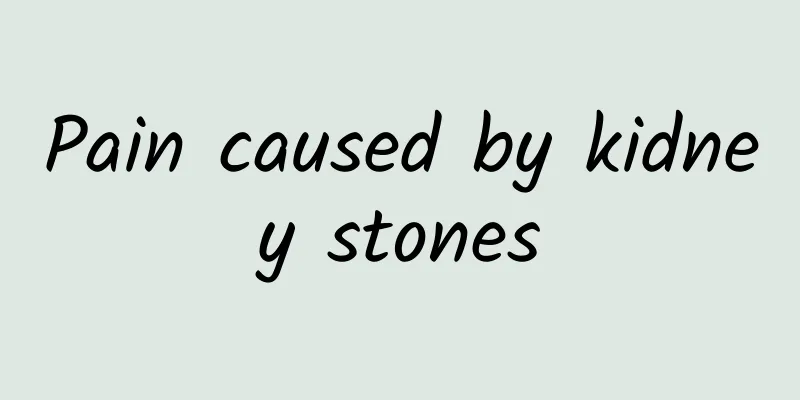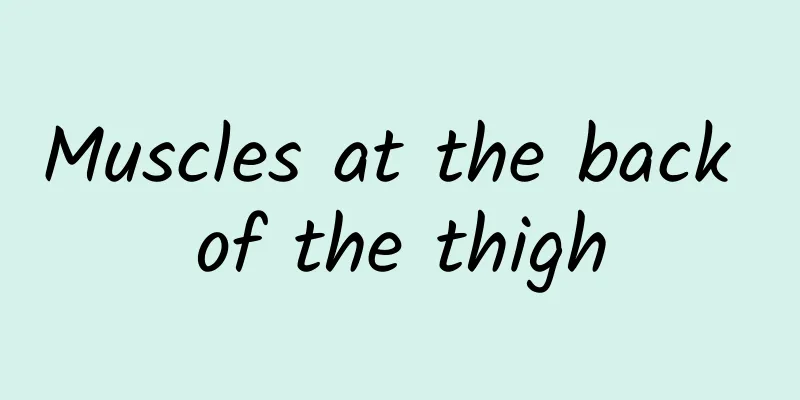Pain caused by kidney stones

|
The incidence of kidney stones is relatively high. Some patients with kidney stones want to know the dangers of kidney stones. Kidney stones are a very stubborn disease that brings a lot of pain to patients. Stones themselves are very harmful to the human body, especially the kidneys, which are the most important organs in the body. Therefore, eliminating stones as soon as possible is the biggest wish of patients with kidney stones. The hazards of kidney stones are multifaceted, the most important of which is difficulty in urination. It can easily cause urinary tract infection and even symptoms of blood in the urine, or cause fever, and even uremia is possible. Severe patients often suffer from severe pain, which affects sleep and even affects normal life and work. Therefore, we must understand the specific hazards of kidney stones so that we can seek medical treatment as soon as possible to avoid the torture of illness. 1. Lumbar colic: Renal colic is a typical symptom of kidney stones. It usually occurs suddenly after exercise or at night with severe pain on one side of the lower back. Because the pain is so severe, it is often described as "knife-like". At the same time, pain in the lower abdomen and inner thigh, nausea and vomiting, pale complexion, etc. may also occur. Renal colic is caused by kidney stones blocking the renal pelvis or ureter during excretion. 2. Hematuria: About 80% of stone patients have hematuria, and only a small number of them can see that the urine is red with the naked eye, while most of them can only be discovered through urine tests. 3. Hydronephrosis: Stones block the renal pelvis and ureters, resulting in poor urine discharge and causing hydronephrosis. Some cases of hydronephrosis may not have any symptoms. Long-term hydronephrosis can cause damage to the kidney function on the affected side. Severe bilateral hydronephrosis may lead to uremia. 4. Fever: Kidney stones can be caused by bacterial infection (infectious stones), or they can induce bacterial infection, leading to fever. Because stones block the excretion of urine, bacteria cannot be excreted in time, which can lead to sepsis and endanger life in severe cases. The harm of kidney stones is obvious, so everyone should pay attention to it. If the kidney stones are not very serious, the stones can be discharged from the body on their own. Then the patient needs to drink more boiled water, and drink a lot of it. Very small stones will be discharged from the body with urine. Of course, this requires the approval of a doctor. Only timely medical treatment can fundamentally solve the harm caused by kidney stones. |
>>: Effects of Xiao Chaihu Decoction
Recommend
There is a hard lump inside a pimple
We all know that when boys and girls enter pubert...
Excessive gas in the stomach
Many people have experienced abdominal bloating. ...
Clinical manifestations of digitalis poisoning
It is usually the earliest manifestation of digit...
Can I walk after cone biopsy?
Most female friends are afraid of suffering from ...
How to drink green tea powder to lose weight quickly
Green tea powder is a powder made from green tea....
What should I do if my nose keeps sneezing and running?
In life, many people believe that sneezing and ru...
What are the dietary precautions after gastroenteroscopy?
People will encounter some diseases in their dail...
What causes skin warts
There is still a big difference in skin condition...
The efficacy and function of King Kong Teng Syrup
In clinical medicine, Gynura syrup is mainly used...
What to do if you have a bitter mouth and bad breath? How to treat a bitter mouth with traditional Chinese medicine
I don’t know if you have ever had this experience...
Can gout patients eat silkworm pupae?
Gout is a common disease problem, most of which a...
What to do with lumbar bone hyperplasia and how to treat it
Lumbar vertebrae bone hyperplasia cannot be said ...
How long does it take to wake up after a brain hemorrhage surgery?
Cerebral hemorrhage is relatively common in life....
What to do if you are poisoned by chlorine gas
Since chlorine is a toxic gas, if the human body ...
Precautions for burns in summer
The weather in summer is quite hot, but burns are...









